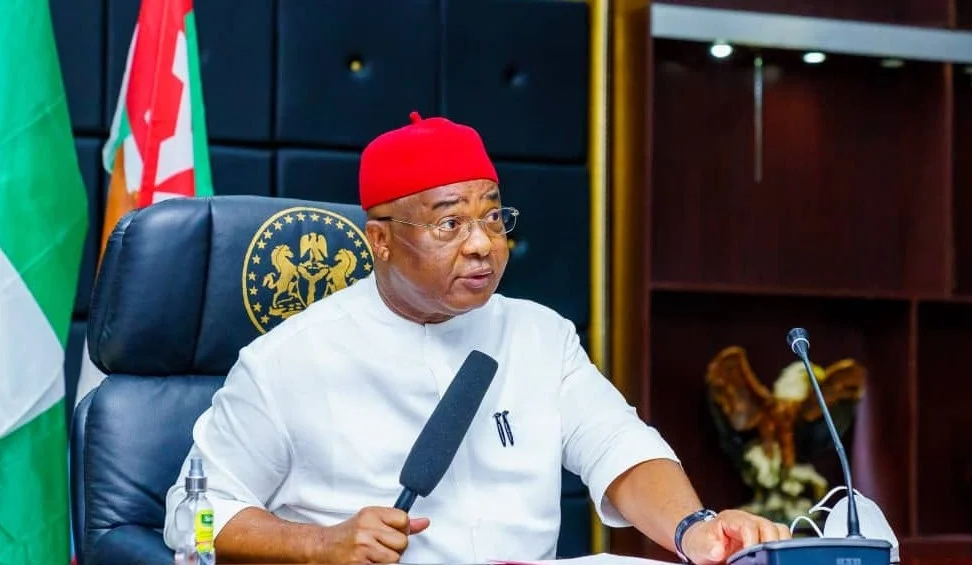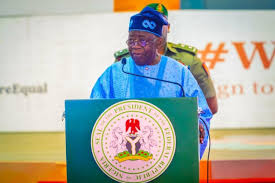Last week, a public hearing was held by the House of Representatives Committee on the Customs and Excise, on bill seeking repeal of the extant Customs and Excise Management Act, 2004, and to enact the Nigeria Customs Service (Establishment) Bill 2021. JOSHUA EGBODO writes on issues which emanated from the engagement
Pace set by Gbajabiamila, panel
Providing insights into business of the day last Tuesday, Chairman committee on customs, Hon. Leke welcome address, said in the contemporary competitive world, the Nigeria Customs Act, its regulations and operational guidelines “are archaic, obsolete, and no longer in tandem with modern-day challenges and this has unfortunately reduced measurably the accruing revenue against the volume of trade” in Nigeria.
He assured, therefore, that the public hearing would provide an opportunity for suggestions toward “transforming the Nigeria Customs Service to being the most potent revenue collecting body in Africa, and to making it the most efficient, streamlined, technologically driven, and people-friendly agency of the Nigerian government”.
Speaker Femi Gbajabiamila who declared the hearing open, also reiterated the House’s determination for wholesale reform of customs operations in Nigeria. Gabajabiamila said the House needed the support of relevant stakeholders NC whose contributions are critical in the legislative process that would strengthen the agency.
According to him, the bill was the product of a coordinated effort by the House, “working with stakeholders in the sector, to implement a wholesale reform of customs and excise operations in Nigeria.
This effort is long overdue, and much needed to address existing challenges with customs enforcement, ports efficiency, smuggling prevention, efficient collection and remittance of government revenue and the proper implementation of government fiscal measures”.
In his charge to invited interests and experts in the sector, Gbajabiamila noted that “whether or not we will succeed in these objectives depends largely on the stakeholders gathered here today, and the contributions you make to the legislative process”, adding that “the Covid-19 pandemic has, among other things, led to a significant decline in global demand for fossil fuels, which coupled with other factors unique to Nigeria, depleted Nigeria’s revenue generation from oil and gas”.
“This reality is a stark manifestation of the ongoing need to diversify our nation’s economy to improve income from non-oil and gas sources. It is also evidence of the need to use the instruments of legislative authority to promote policies and enact mandates to encourage investment, enable commercial activity and promote enterprise in the country.
“Ensuring that the Nigeria Customs Service (NCS) operates optimally in executing its statutory functions without corruption and malfeasance of any sort is essential to achieve these other objectives. And this is what we hope to achieve with the Bill under consideration”, he submitted.
But the flip side
In spite of the lofty promises as offered by Gbajabiamila and the committee, key stakeholders in dissecting certain provisions in the bill, kicked against it. Minister of Finance, Budget and National Planning, Dr Zainab Ahmed and members of the Organised Private Sector (OPS), for instance expressed stern opposition to passage of the proposed legislation.
Other stakeholders including Association of Customs Licensed Agents (ANCLA), National Association of Government Approved Freight Forwarders (NAGAFF); Mr Lucky Eyis Amiwer, a member of Presidential Task Force to reform the Nigeria Customs and many more unanimously expressed concerns during the public hearing, with some frowning at the overlapping functions of various regulatory agencies, as well as describing the proposed bill as draconian and a form of overbearing powers that which will erode citizens’ rights.
Minister of Finance, who was represented by the Permanent Secretary, Aliyu Ahmed though expressed support for the modernization of the legal framework for the administration and management of the Nigeria Customs Service, but insisted that the move to create an autonomous regulatory body, separate from the supervision of the ministry, was not in line with international best practices.
According to her, Customs Administration in most developed democracies and our peer developing nations is under the supervision of the Treasury, or the Ministry responsible for Finance or economic management, citing the United Kingdom, New Zealand, Argentina, Spain, Bolivia, Peru, Venezuela, Ghana and Uganda as some example nations.
“The contemplation of an autonomous Customs Service is in abeyance with extant laws regarding the treasury, supervision of the treasury and all agencies which remit funds to the Federation Account and the Consolidated Revenue Fund. In line with the Finance (Management and Control) Act, the ministry is the relevant authority charged with the responsibility of ensuring compliance with the Customs and Excise legislation regarding trade and fiscal policies and where appropriate, applying other relevant provisions applicable to goods subject to such measures.
“The composition of the Board as proposed by the Bill is unwieldy with the inclusion of the Chairman and thirteen other members and the DCGs. Ministries like Aviation, Interior, Transportation and Foreign Affairs need not be represented on the Board. N
Also, the intention to replace the Minister of Finance, Budget and National Planning as the Chairman of the Board with an appointee of Mr President subject to confirmation by the National Assembly, will limit the supervisory authority of the Federal Government.
“This is not in alignment with Section 80 of the Constitution of the Federal Republic of Nigeria which creates the Consolidated Revenue Fund and the provisions of Section 4 of the Finance (Management and Control) Act (2004)…”, she pointed out.
She also kicked against the move to give the NCS powers to engage in border enforcement and regulatory activities, saying “this is an infringement on the mandate of the Nigerian Immigration Services (NIS) by virtue of the provisions of the Immigration Act (2004), which empowers the NIS to act to protect Nigeria’s borders. NCS has the mandate to establish customs offices at the borders, but the protection of the nation’s borders is strictly within the purview of NIS and not the NCS as stated in this Bill.
“The Bill seeks to authorize the NCS to make regulations concerning the manufacture of beer, tobacco, carbonated drinks (etc) which is firmly an infringement on the provisions of the Nigeria Factories Act which places the mandate to oversee the manufacturing of certain products in the purview of the Minister of Industries, Trade and Investments and the Minister of Labour”, she said.
NEPZA also
While debate on opposition by the participating stakeholders lasted, the Nigeria Export Processing Zones Authority (NEPZA), over the weekend also explained its opposition to some sections of the proposed law, citing three reasons why amendment to give the Customs Service powers to make regulations in Free Zones will weaken and subvert Nigeria’s Special Economic Zones.
A statement by Head, Corporate Communications of NEPZA, Mr. Martins Odeh, in reference to the agency’s submission to the House of Representatives’ committee said “Free Zones are areas designated as such by the President to serve as one-stop-shop investment hub, wherein incentives are provided in form of tax holidays, simplified Customs and Immigration processes, amongst others, with a view to attracting investors”, NEPZA stated amongst more issues raised.
A case of poor consultation?
In spite of the position taken by Speaker Femi Gbajabiamila at the opening of the public hearing last week that the bill was a product of engagements with critical stakeholders, it has remained a subject of bewilderment to followers of the issues, following the plethora of opposition to the proposed legislation. Was it then a case of poor consultation? Time will provide answers to same, especially when the committee present its report to the larger house.
Issues with the Reps’ customs reform bill




